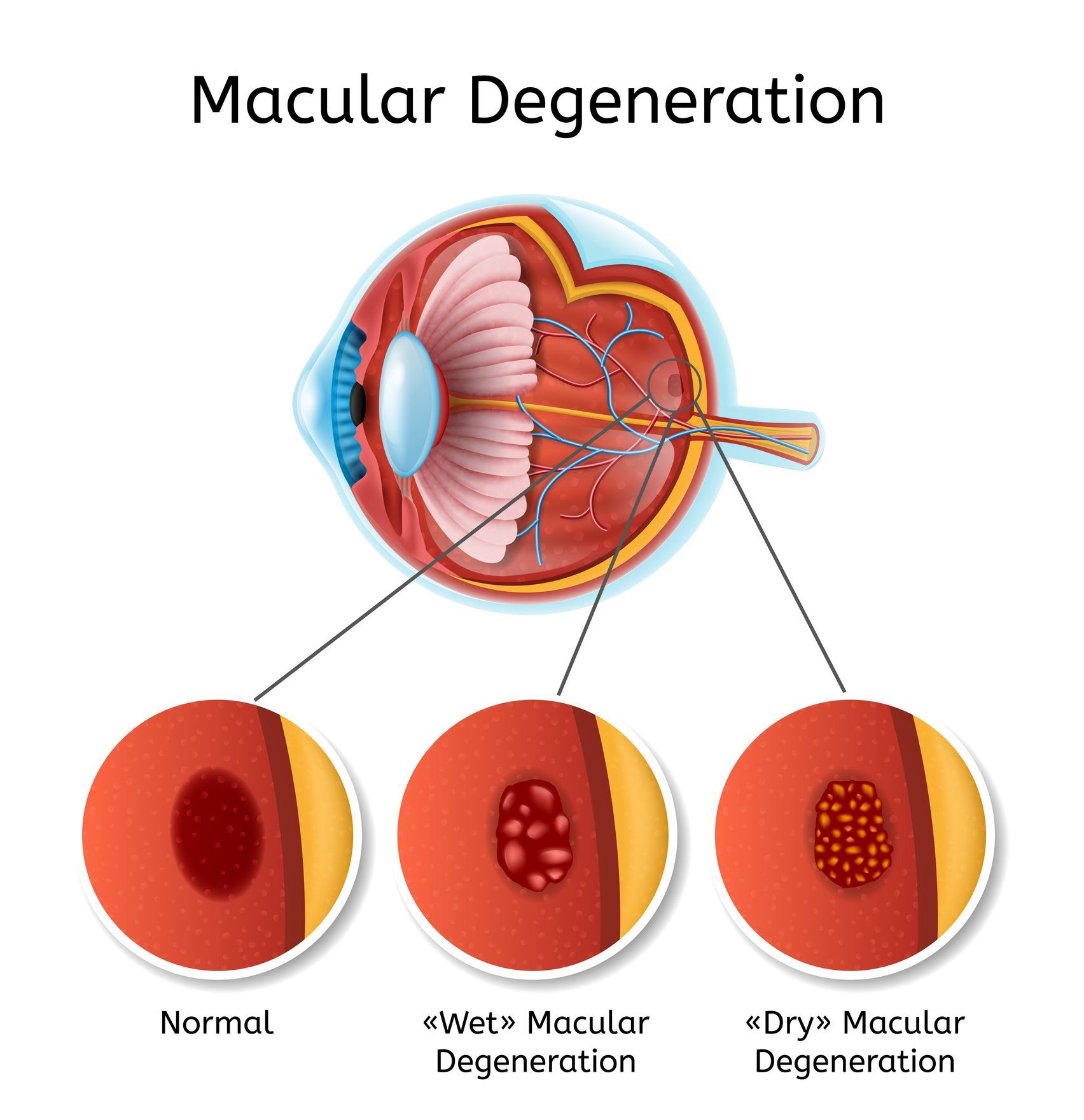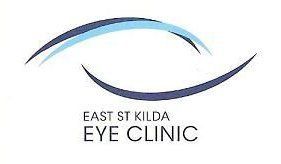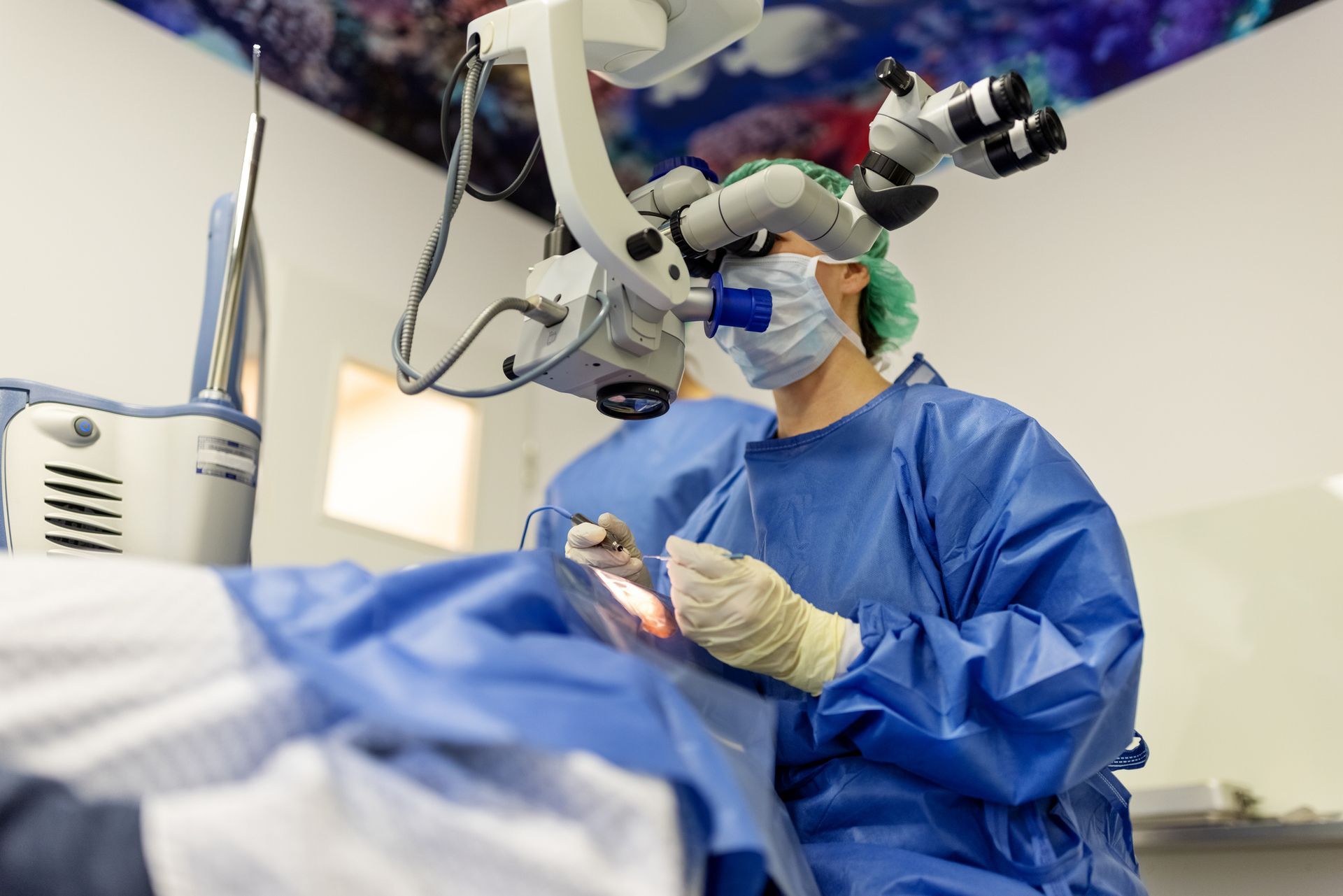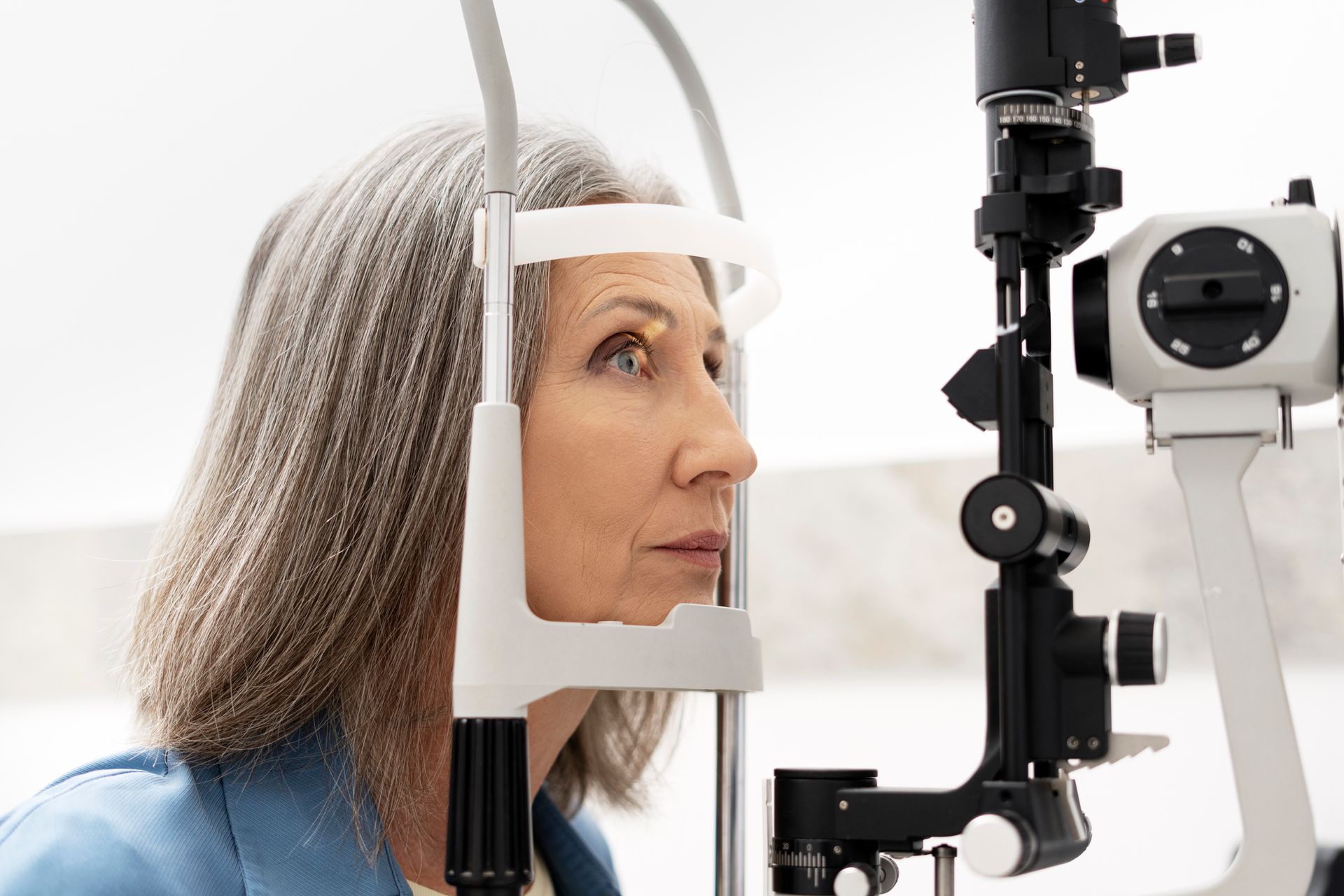Understanding Macular Degeneration: What to Know
Macular degeneration, also known as age-related macular degeneration (AMD), is a progressive eye condition that affects central vision. For residents in Caulfield, understanding macular degeneration is crucial because early detection can significantly slow its progression and preserve eyesight.
The macula is the central part of the retina responsible for sharp, detailed vision. When it deteriorates, daily activities like reading, driving, and recognising faces become difficult. At East St Kilda Eye Clinic, we specialise in diagnosing and managing macular degeneration, offering Caulfield residents access to expert care.
Types of Macular Degeneration
There are two primary forms of macular degeneration:
Dry (Atrophic) Macular Degeneration
- The most common type, affecting about 90% of patients.
- Develops slowly as the macula thins over time.
- Yellow deposits (drusen) accumulate under the retina.
- Causes gradual central vision loss.
Wet (Neovascular) Macular Degeneration
- Less common but more severe.
- Abnormal blood vessels grow under the retina, leaking blood and fluid.
- Can cause rapid and severe vision loss if untreated.
- Requires immediate medical intervention.
Early detection through regular macular degeneration screenings can help identify the condition before significant vision loss occurs.
Common Symptoms of Macular Degeneration
Recognising the early warning signs can help you seek treatment sooner. Symptoms may include:
- Blurred or distorted vision – Straight lines may appear wavy or bent.
- Difficulty reading or recognising faces – Words may seem faded or missing letters.
- Dark or empty spots in central vision – A growing blind spot may develop.
- Reduced colour brightness – Colours may appear less vibrant.
- Increased sensitivity to glare – Bright lights may cause discomfort.
If you notice any of these symptoms, book an appointment at East St Kilda Eye Clinic for a comprehensive eye exam.
Who Is at Risk? Key Factors for Caulfield Residents
Several factors increase the likelihood of developing macular degeneration, including:
Age
- Most common in adults over 50.
- Risk increases significantly after age 60.
Genetics & Family History
- If a close family member has AMD, your risk is higher.
- Certain genes are linked to macular degeneration.
Smoking
- Smokers are twice as likely to develop AMD.
- Toxins in cigarettes damage retinal blood vessels.
Diet & Nutrition
- A diet low in antioxidants (lutein, zeaxanthin, vitamins C & E) increases risk.
- Omega-3 fatty acids (found in fish) help protect retinal health.
Cardiovascular Health
- High blood pressure and cholesterol can contribute to AMD.
- Poor circulation affects retinal function.
If you have one or more of these risk factors, regular eye checks are critical.
How Is Macular Degeneration Diagnosed?
At East St Kilda Eye Clinic, we use advanced diagnostic tools to detect macular degeneration early:
Comprehensive Eye Exam
- Visual acuity test (reading an eye chart).
- Dilated eye exam to inspect the retina.
Optical Coherence Tomography (OCT)
- Non-invasive imaging that provides detailed retina scans.
- Detects thinning, swelling, or fluid leakage.
Amsler Grid Test
- A simple at-home test where straight lines appear distorted if AMD is present.
Early diagnosis allows for timely treatment, which can slow vision loss.

Treatment Options for Macular Degeneration
While there is no cure, several treatments can help manage the condition:
- AREDS2 Supplements – A specific blend of vitamins (C, E, zinc, copper, lutein, zeaxanthin) may slow progression.
- Dietary Changes – Eating leafy greens, fish, and nuts supports eye health.
- Lifestyle Adjustments – Quitting smoking helps.
For Dry Macular Degeneration
- Complement Blocker Injections – Medications like Syfovre prevent C3 activation to slow disease progression.
For Wet Macular Degeneration
- Anti-VEGF Injections – Medications like Lucentis, Eylea, and Vabysmo block abnormal blood vessel growth.
Our specialist doctors at East St Kilda Eye Clinic tailor treatments to each patient’s needs.
How to Protect Your Vision: Prevention Tips
Taking proactive steps can reduce your risk of vision loss:
- Quit Smoking – The single most modifiable risk factor for AMD.
- Eat a Retina-Friendly Diet – Include spinach, kale, salmon, and berries.
- Control Blood Pressure & Cholesterol – Supports healthy blood flow to the eyes.
- Wear Sunglasses with UV Protection – Shields eyes from harmful rays.
- Exercise Regularly – Improves circulation and overall eye health.
- Schedule Regular Eye Exams – Early detection is key to preserving vision.
When Should You See an Eye Specialist?
If you experience:
- Sudden vision changes
- Distorted or blurry central vision
- Difficulty recognising faces or reading
- Dark spots in your vision
Where to Get Help in Caulfield
At East St Kilda Eye Clinic, we provide expert care for macular degeneration. Our team uses the latest technology to diagnose and manage the condition effectively. Don’t wait until it’s too late—early intervention can save your sight. Contact us today to book an appointment.


